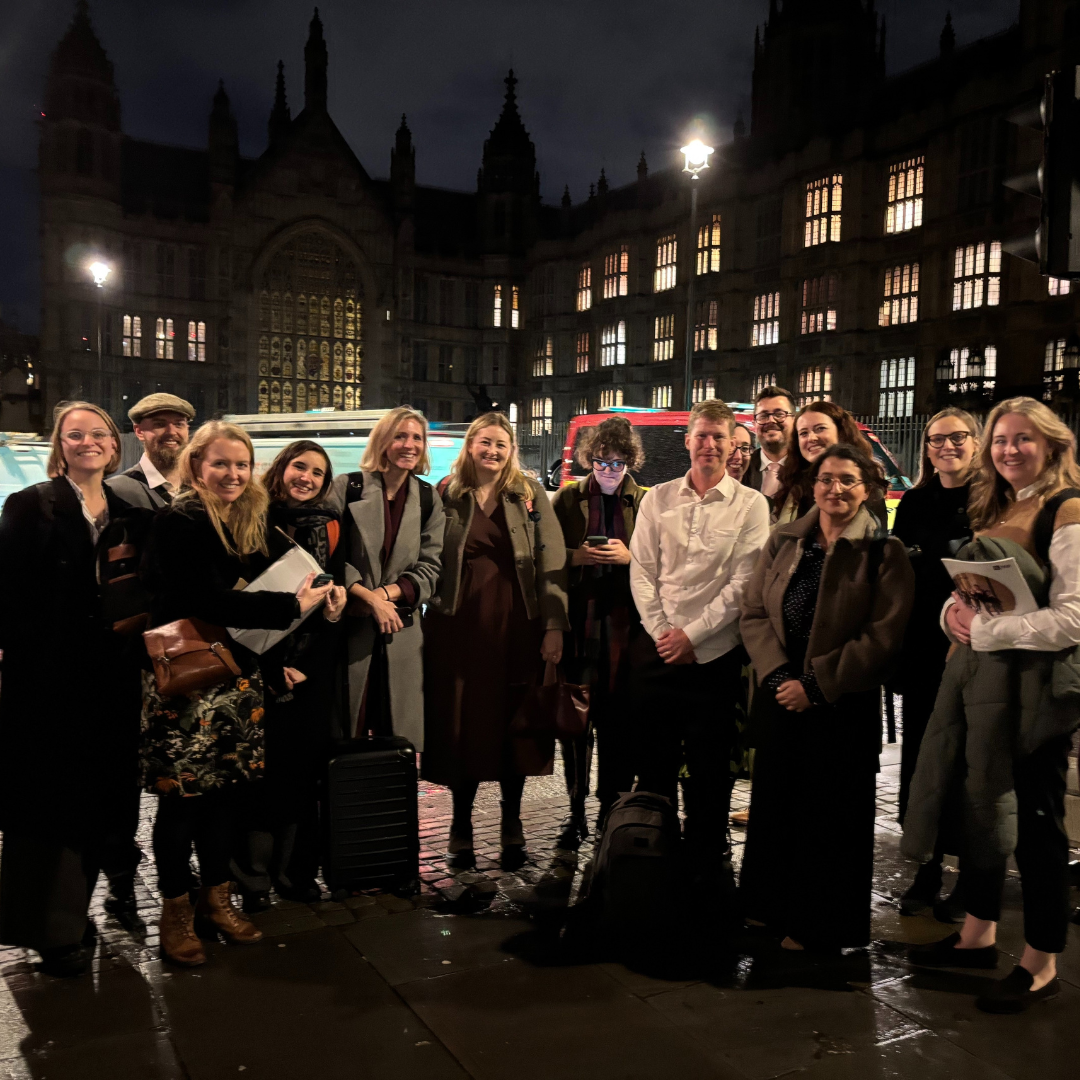I had the privilege of meeting Maxine Low, the Executive Head of Brooklands Farm Primary School to discuss their strong scores for workload (see Figure 1), with a rating of 7.5/10 (in Autumn 2023), surpassing the TEP National Benchmark of 6.5/10 by 1.0 point (for more on our Benchmarking check out our latest blog post).
.webp)
Brooklands Farm, a TEP Pilot Partner school, is an Outstanding six-form entry primary school based in Milton Keynes. Since opening in 2011, it has grown exponentially from 49 pupils to 1320 pupils and employs 150 staff, including 80 teachers.
Research and evidence into practice are fundamental values at Brooklands Farm, and this was evident throughout our conversation. Maxine is enthusiastic about the role of research in her role, evidenced by the completion of her MBA during the Covid-19 period. The school’s commitment to data-driven decision-making, encapsulated by the phrase ‘data into dialogue’, is omnipresent in its design and operations. Notably, the school is split across two sites, and within each site are multiple smaller schools. Inspired by research on relationship dynamics by Robin Dunbar, which found that one can only really know around 150 people. As a result, the smaller schools have a maximum of 180 pupils, each with their own headteacher, leadership team, structure, and identity.
This case study dives into the values and ethos of the school that contribute to their high TEP scores, Maxine’s recent MBA and research-led approach and her determination to develop flexible working and keep workloads sustainable at Brooklands Farm.
Fostering Empowerment: The Listening Culture at Brooklands Farm
Central to Brooklands Farm’s ethos is its listening policy, Maxine based this on Malaguzzi’s work on the Reggio Emilia approach, truly listening to the children at the school and valuing them as “strong and powerful”.
Students co-own their learning journey and are coached using the Grow model (along with the teachers). There are no parents’ evenings – instead the student, parent and teacher meet to co-construct a ‘Grow Plan’. When students meet their personal and social development milestones, parents are invited into the school and the student receives a pin badge celebrating this achievement.
The listening policy isn’t just for the students and is extended to the school staff. In her MBA dissertation, Maxine focussed on the impact of the pandemic on her staff, who she interviewed. There were three key findings:
- Staff wanted greater flexibility – Maxine has scrapped training days and replaced them with self-study days. Maxine has also protected two hours of directed time per week for learning.
- Staff wanted to discuss their learning with others – Maxine is a firm believer in social constructivism and developed ‘Communities of Practice’ where staff could work together to share the most beneficial learning and resources amongst themselves.
- Staff wanted to know what they were doing was making a difference to the students. Brooklands Farm is working with ImpactEd Evaluation to evaluate the impact of current approaches including AI in the classroom, peer-to-peer review, oracy in the classroom and metacognition.
At Brooklands Farm, they use TEP to facilitate the listening culture. During the last census window, they achieved an impressive response rate of 90%, encouraged by Maxine urging her staff to ‘have a voice’ and co-own the school. Maxine emphasises, “My leadership is invitational, and I will stand by your side,” highlighting the importance of staff input. Alongside high response rates, the TEP results support this strong listening culture, this can be exemplified by the scores for three key questions in the TEP survey, see Table 1.
.webp)
Sourcing best practice: Brooklands Farm's Open-minded approach
At Brooklands Farm, Maxine takes a unique approach to the implementation of new ideas, addressing issues or delving into trends identified in TEP results. She shuns tick-box solutions and instead follows a comprehensive process of co-collaboration. Maxine begins with horizon-scanning, she dedicates time to understanding emerging workforce trends, particularly within the top 50 FTSE companies. Next, she collaborates with staff, presenting data trends and delving into the underlying theories and evidence, ensuring alignment with the school's ethos and values. This collaborative approach, rooted in teacher input, research, and evidence, promotes the co-design of solutions. These solutions are then meticulously built, trialled, and evaluated, with data collection forming the basis for iterative feedback loops. Her aim is to achieve double-loop feedback, a process that Maxine seamlessly integrates alongside the TEP tool, driving the continuous improvement journey at Brooklands Farm.
Through this discovery process, Maxine introduced Scrum, a powerful project management tool. Scrum involves breaking work into manageable chunks within short timeframes (3-week cycles at Brooklands), setting clear goals, encouraging tight feedback, and listening loops. Its implementation aimed to support the management of staff workload. Within the Scrum framework, Maxine and the leadership team 'commission' teaching staff for leadership or management projects alongside their day-to-day teaching duties. Clear timelines and collaboration opportunities are provided, emphasising the importance of teamwork. Should a staff member forward or backwards plan and realise they lack capacity, options such as reassignment or timeline adjustment are offered immediately. Maxine stresses the significance of teachers prioritising their day-to-day teaching roles, while leaders meticulously contemplate the additional tasks that they commission.
In addition to implementing Scrum principles to manage workload, Maxine is dedicated to building flexibility into teaching roles. She is exploring innovative approaches such as the 9-day fortnight being introduced at Dixons, collaborating with her team to refine its possible implementation. At the same time, she's engaging her workforce to evaluate the feasibility of a 2:30pm finish time during the summer term and developing a policy for equitable and sustainable unpaid leave to facilitate the growing number of teachers who want to travel and are constrained by inflexible holiday periods.
On a smaller scale, pragmatic initiatives such as allowing teachers to reclaim time accrued from lunch duties for personal commitments, such as attending weddings, are being implemented. In addition, during the lengthy 8-week half-term preceding Christmas, Maxine and her HR lead developed strategies to uplift staff morale, including randomly selecting a staff member weekly to leave early at 2:30pm. Maxine shared examples of many occasions where this created space for staff members to support their families, attend important events and contribute to a full life alongside work.
Evaluating Impact: Brooklands Farm's Approach to Feedback and Improvement
Initiatives introduced by Maxine and her team are in line with the long-standing listening policy, linked to data on social constructivism and reviewed using the double loop feedback. This ethos, deeply ingrained in the school's leadership, reflects Maxine's key takeaway from her MBA experience: decisions must be grounded in data. However, Maxine faces a formidable challenge in her quest to establish a sustainable workload due to the inherent nature of teachers as public servants. She grapples with increasing difficulty in making her voice heard amidst the noise of government mandates, teacher strikes, and union communications.
Key takeaways
- Everyone's Voice Matters: At Brooklands Farm, listening isn't just a buzzword—it's a way of working. Students, teachers, and staff all have a say in how things are done, leading to a collaborative and empowering environment.
- Work Smart, Not Hard: The school gets creative with workload management, trying out flexible approaches like Scrum and alternative schedules to help teachers find balance.
- Data Drives Dialogue: Maxine is guided by data in decision and policymaking, ensuring she builds and sustains the best working environment for her staff, continually innovating and scanning for developments in a variety of sectors.
You can hear from Maxine in our upcoming webinar on flexible working and workforce planning on Wednesday 1st May, signup here.
Maxine is happy to be contacted to discuss her approach further via LinkedIn or her email maxinelow@brooklandsfarm.milton-keynes.sch.uk

.webp)
%20(1).webp)





.png)

